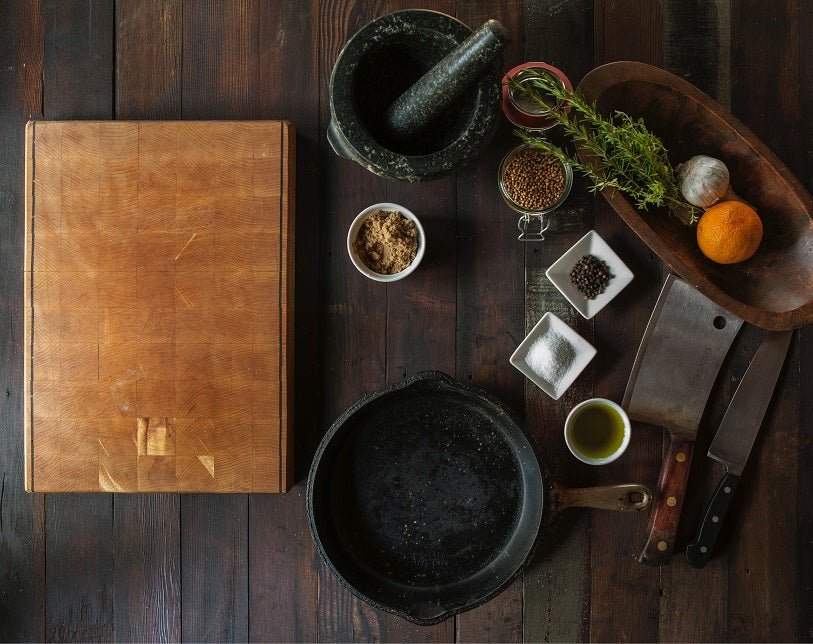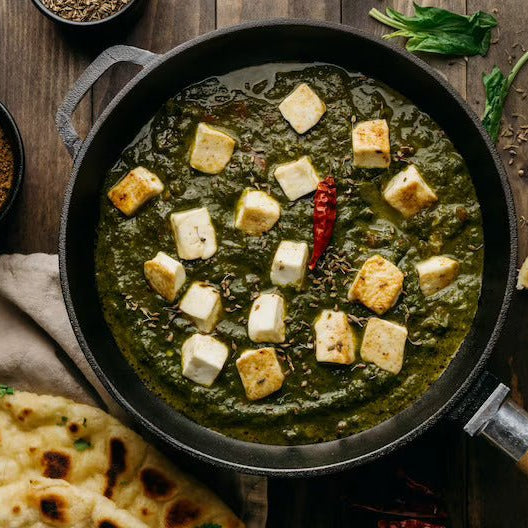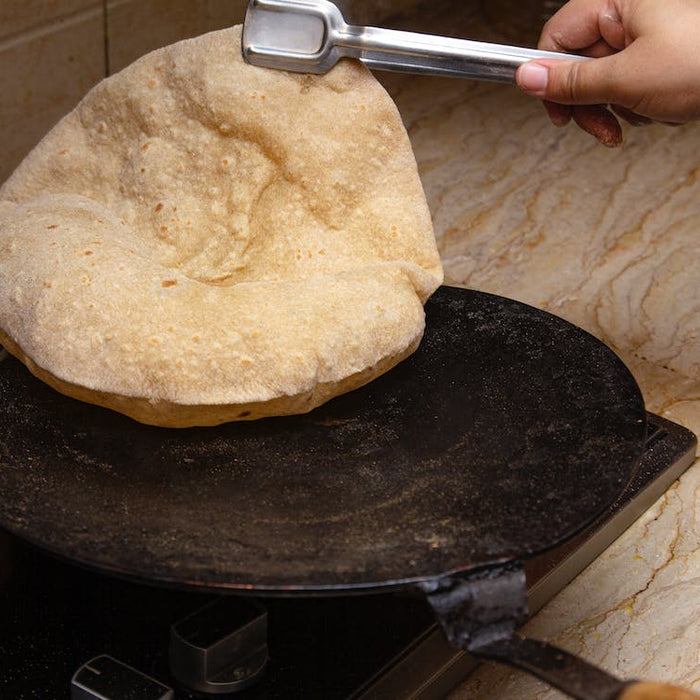
The Advantages and Disadvantages of Cast Iron Pans [Updated]
Cast iron pans have long been a staple in kitchens around the world, valued for their durability and versatility. Whether you're a seasoned chef or a cooking enthusiast, understanding the pros and cons of cast iron pans is essential for making an informed decision about incorporating them into your culinary arsenal. In this comprehensive guide, we will explore the various aspects of cast iron pans to help you navigate their advantages and disadvantages, empowering you to make the most out of this timeless cookware.

What are cast iron pans?
Cast iron pans are cooking utensils made from cast iron, known for their thick, heavy construction and excellent heat retention properties. They are prized for their ability to distribute heat evenly, making them ideal for tasks such as searing, frying, baking, and even slow cooking.
When to use cast iron pans?
Cast iron pans can be used in a variety of cooking scenarios, including stovetop cooking, oven baking, and even outdoor grilling. They are particularly well-suited for recipes that require high heat, such as searing steaks or achieving a crispy crust on baked goods. Cast iron pans are also great for dishes that benefit from even heat distribution, such as braises and casseroles.
Where to find cast iron pans?
Cast iron pans can be found in kitchenware stores, specialty cookware shops, and online retailers. Look for reputable brands that offer high-quality cast iron pans with a smooth cooking surface and a well-seasoned finish.
Who can benefit from using cast iron pans?
Anyone who enjoys cooking and values durability, versatility, and superior heat retention can benefit from using cast iron pans. From professional chefs to home cooks, cast iron pans can elevate the cooking experience and deliver delicious results. They are particularly popular among those who appreciate the art of traditional and rustic cooking techniques.

Why choose cast iron pans?
Cast iron pans offer several advantages that make them a popular choice among cooks:
- Superior heat retention: Cast iron pans excel at retaining and distributing heat evenly, ensuring consistent cooking results.
- Versatility: Cast iron pans can be used for a wide range of cooking techniques, from searing and frying to baking and even grilling.
- Durability: Cast iron pans are built to last and can withstand high temperatures and heavy use. With proper care, they can be passed down through generations.
- Natural non-stick properties: With proper seasoning and maintenance, cast iron pans develop a natural non-stick surface, reducing the need for excessive oil or cooking sprays.
However, it's important to be aware of the potential cons associated with cast iron pans as well. High maintenance & Heavyweight, : Cast iron pans require special care and maintenance to keep them in optimal condition, including regular seasoning, proper drying, and avoiding certain cleaning methods. Cast iron pans are significantly heavier compared to other cookware options, which may be a disadvantage for some individuals, especially those with physical limitations.
The disadvantages of cast iron
While cast iron pans offer numerous advantages, it's important to acknowledge that they also have a few potential disadvantages. One of the main drawbacks of cast iron pans is their weight. Cast iron is significantly heavier than other types of cookware, which can make handling and maneuvering them more challenging, especially for individuals with physical limitations. Additionally, cast iron pans require regular maintenance, including seasoning and careful cleaning, to prevent rust and maintain their non-stick surface. Improper cleaning or using harsh cleaning agents can strip away the seasoning and damage the pan. Another consideration is that cast iron pans have slower heat-up and cool-down times compared to some other materials, which can impact cooking time and temperature control. Finally, acidic ingredients, such as tomatoes or citrus fruits, can react with the iron and alter the taste of the food. While these disadvantages may exist, with proper care and understanding, they can be managed, allowing you to enjoy the many benefits that cast iron pans have to offer.
- Heavy weight: Cast iron pans are significantly heavier than other types of cookware, which can make handling and maneuvering them more challenging, particularly for individuals with physical limitations.
- Regular maintenance: Cast iron pans require regular maintenance, including seasoning and careful cleaning, to prevent rust and maintain their non-stick surface. Improper cleaning or using harsh cleaning agents can strip away the seasoning and damage the pan.
- Slower heat-up and cool-down times: Cast iron pans have slower heat-up and cool-down times compared to some other materials, which can impact cooking time and temperature control.
- Reactivity with acidic ingredients: The iron in cast iron pans can react with acidic ingredients, such as tomatoes or citrus fruits, which can alter the taste of the food being cooked.
It's important to note that while cast iron pans have these disadvantages, they can be managed with proper care and understanding. With regular maintenance and attention to cooking techniques, you can still enjoy the many benefits that cast iron pans have to offer.
Which cast iron pans to choose?
When selecting cast iron pans, it's important to consider factors such as size, weight, handle design, and overall quality. Look for reputable brands that offer well-crafted cast iron pans with a smooth cooking surface and a durable finish.
Whose recommendations to trust?
When seeking recommendations on cast iron pans, consider the advice of professional chefs, cooking enthusiasts, and reputable cooking publications. Their knowledge and experience can provide valuable insights and help you make an informed decision.
Conclusion: Cast iron pans have both pros and cons, making them a versatile yet demanding cookware option. By understanding their advantages and disadvantages, you can fully appreciate their benefits while effectively managing their challenges. Whether you're a fan of traditional cooking techniques or simply enjoy the durability and versatility of cast iron pans.
Additionally, in your quest for mastering cast iron cookware, it's worth mentioning the buzz around MACclite cookware. MACclite has become a household name in India of kitchenware, renowned for its exceptional quality and innovative designs. With their range of cookware, including non stick pans, cast iron skillets, and more, MACclite has garnered attention from both professional chefs and home cooks alike. These must-have kitchenwares are crafted with precision and passion, ensuring optimal performance and durability. So, if you're looking to elevate your cooking experience and achieve culinary excellence, MACclite cookware is definitely worth considering. Join the conversation and discover why everyone is talking about MACclite as the go-to brand for top-notch kitchenware.
Incorporating MACclite cookware into your culinary adventures will not only enhance your cooking techniques but also elevate the overall experience of creating healthy and delicious meals. Don't miss out on the opportunity to equip your kitchen with these exceptional kitchenwares and join the community of passionate cooks who have discovered the joys of cooking with MACclite. Explore their collection and unlock a world of possibilities in your kitchen.Happy cooking!
See below our Bestsellers of Cast Iron Cookware 👇
Featured collection
-
Original price - Original priceOriginal price Rs. 19.99Rs. 19.99-Current price Rs. 19.99
Product title
Original price - Original priceOriginal price Rs. 19.99Rs. 19.99-Current price Rs. 19.99 -
Original price - Original priceOriginal price Rs. 19.99Rs. 19.99-Current price Rs. 19.99
Product title
Original price - Original priceOriginal price Rs. 19.99Rs. 19.99-Current price Rs. 19.99 -
Original price - Original priceOriginal price Rs. 19.99Rs. 19.99-Current price Rs. 19.99
Product title
Original price - Original priceOriginal price Rs. 19.99Rs. 19.99-Current price Rs. 19.99 -
Original price - Original priceOriginal price Rs. 19.99Rs. 19.99-Current price Rs. 19.99
Product title
Original price - Original priceOriginal price Rs. 19.99Rs. 19.99-Current price Rs. 19.99 -
Original price - Original priceOriginal price Rs. 19.99Rs. 19.99-Current price Rs. 19.99
Product title
Original price - Original priceOriginal price Rs. 19.99Rs. 19.99-Current price Rs. 19.99
Blog posts
-
-

What is Karahi or Kadahi? Exploring Its Best Use in 2024 | Non Stick
The kadai or karahi holds a special place, when it comes to Indian cooking,choose MACclite kadai cookware for a healthier and more enjoyable cooking experience.Read now -

Best Tawa for Roti 2024 - Guide to Choosing the Best Iron Tawa for Your Family
The roti tawa is the right tool to achieve the ideal texture and taste. Finding the perfect roti tawa for your family can be both rewarding and challenging in 2024 due to the many options available.Read now


